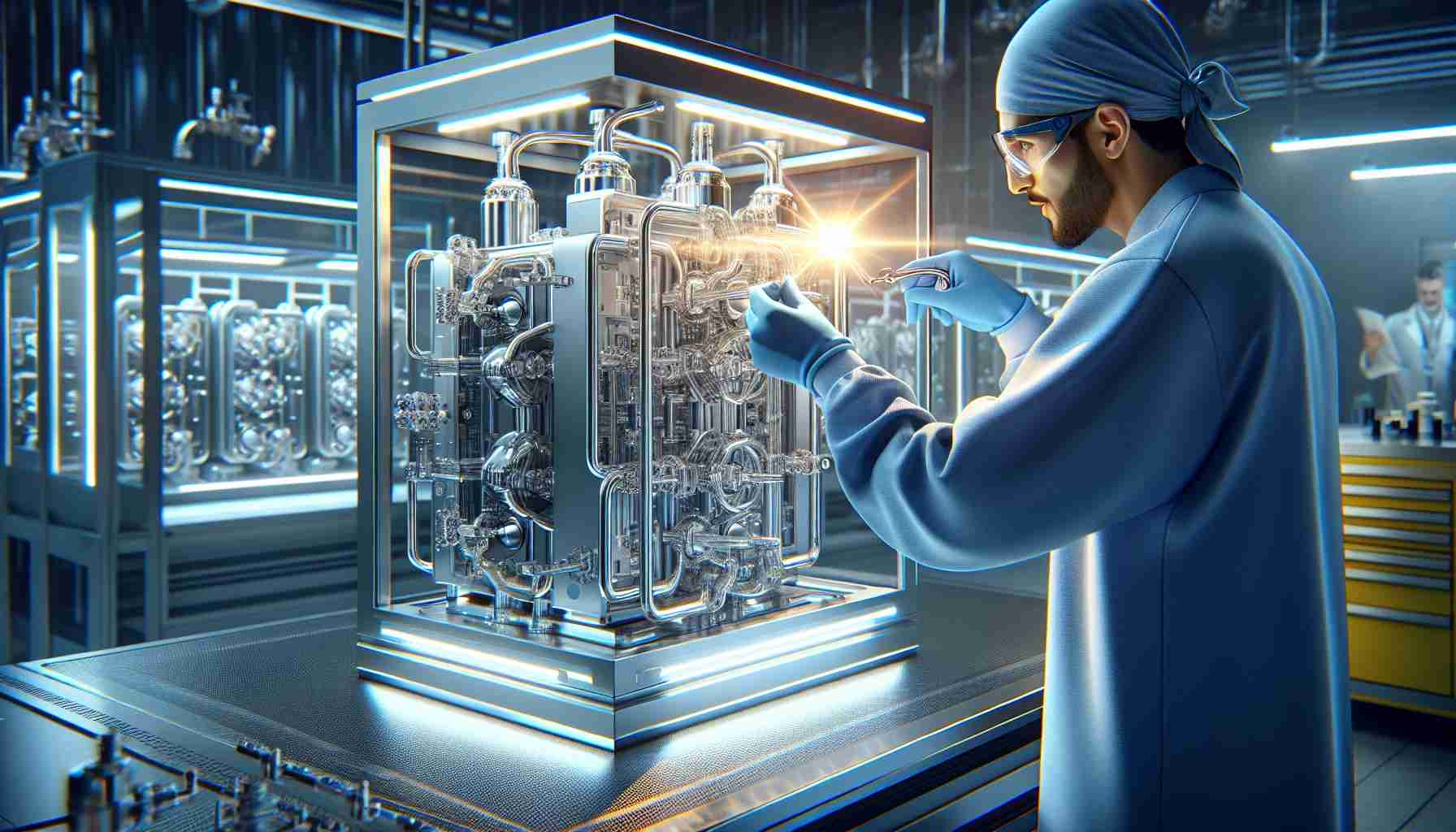- Hydrogen fuel cells are gaining traction in sustainable energy technology, with advancements focusing on high-temperature and low-humidity performance.
- The environmental advantages of hydrogen fuel include only producing water vapor and heat, making it a cleaner alternative to fossil fuels.
- Researchers are moving away from harmful PFAS to safer phosphonic acid hydrocarbon polymers, improving fuel cell stability and safety.
- Innovative design elements, like a hydrophobic spacer, enhance fuel cell conductivity and reduce moisture dependency.
- This progress expands the potential applications of hydrogen fuel cells from vehicles to energy storage, promoting a future focused on sustainability.
In the race for sustainable energy, hydrogen fuel cells are emerging as a frontrunner, and researchers in Japan are making significant strides in this arena. At Nagoya University, a team has developed an innovative design that allows fuel cells to thrive in high-temperature and low-humidity conditions, tackling major obstacles to widespread use.
Hydrogen fuel is radiant in its environmental benefits—its only byproducts are water vapor and heat, offering a robust efficiency of 40-60%, starkly superior to gasoline’s mere 20%. Traditionally, these cells relied on perfluorosulfonic acid polymers (PFAS), known for their harmful environmental impact. However, the pioneering research led by Atsushi Noro focuses on utilizing phosphonic acid hydrocarbon polymers, which are not only safer but also exhibit greater stability at higher temperatures.
By ingeniously incorporating a hydrophobic spacer into the fuel-cell design, the team overcame several challenges of conductivity and moisture dependence. The result? Enhanced performance that diminishes the risk of carbon monoxide fouling, simplifies cooling system designs, and ultimately lightens the fuel-cell setup.
This breakthrough paves the way for hydrogen fuel cells to power a plethora of applications—from vehicles to buildings, and even as long-term energy storage solutions. As production scales and accessibility increases, the transportation industry will embrace hydrogen fuel alongside battery electric systems, forging a path toward a greener, more sustainable future.
Stay ahead of the curve with innovations transforming our planet—sign up for weekly updates and discover simple ways to support the environment while enhancing your life!
Revolutionizing Clean Energy: The Future of Hydrogen Fuel Cells
In the ongoing quest for sustainable energy solutions, hydrogen fuel cells have emerged as a game-changer, spearheaded by groundbreaking research from Japan’s Nagoya University. This innovative approach addresses critical challenges that have previously hindered the widespread adoption of hydrogen as a clean energy source.
Key Innovations and Features
Researchers led by Atsushi Noro have developed a new hydrogen fuel cell design that operates effectively in high-temperature and low-humidity environments. This advancement utilizes phosphonic acid hydrocarbon polymers, which replace the environmentally harmful perfluorosulfonic acid polymers (PFAS) traditionally used in fuel cells. The new polymers not only enhance safety but also improve performance, particularly in challenging conditions.
Other crucial enhancements include:
– Hydrophobic Spacer: This element reduces moisture dependency, allowing for better conductivity and performance.
– Improved Stability: The newer materials show resistance to carbon monoxide fouling, prolonging the operational lifespan of fuel cells.
– Versatile Applications: From vehicles to residential buildings, the new fuel cells can be integrated into various contexts, offering a diverse range of practical uses.
Market Insights and Trends
The transition to hydrogen fuel cells is backed by growing interest and investment in sustainable energy technologies. According to industry forecasts, the hydrogen fuel cell market is projected to grow significantly, with estimates suggesting a compound annual growth rate (CAGR) of over 15% by 2030. This expansion is driven by increasing regulatory support for clean fuel technologies and the urgent need to reduce carbon emissions.
Pros and Cons of Hydrogen Fuel Cells
Pros:
– Environmental Benefits: The primary byproducts of hydrogen fuel cells are water vapor and heat, contributing to a cleaner environment.
– Higher Efficiency: Hydrogen fuel cells can achieve efficiencies of 40-60%, outperforming traditional fossil fuels.
– Versatile Applications: These cells can be used across various sectors, promoting sustainability in transportation and energy storage.
Cons:
– Infrastructure Challenges: The existing refueling infrastructure for hydrogen is limited compared to gasoline and electric charging stations.
– Production Costs: Currently, producing hydrogen fuel can be expensive, particularly if derived from non-renewable sources.
– Storage Issues: Storing hydrogen safely and efficiently remains a significant technical hurdle.
Frequently Asked Questions
1. What are the environmental impacts of hydrogen fuel cells?
Hydrogen fuel cells are considered environmentally friendly because their only emissions are water vapor and heat. Unlike fossil fuels, which release harmful pollutants, hydrogen presents a cleaner alternative that helps mitigate climate change.
2. How do hydrogen fuel cells compare to battery electric systems?
While both hydrogen fuel cells and battery electric systems aim to reduce emissions, they function differently. Hydrogen fuel cells have faster refueling times and longer ranges, making them suitable for heavy-duty transport. In contrast, battery electric vehicles excel in efficiency and are currently more common for light-duty applications.
3. What future innovations can we expect in hydrogen fuel cell technology?
Advancements are likely to include improvements in hydrogen production methods, such as electrolysis using renewable energy sources. Research is also ongoing into making fuel cells more affordable and efficient, increasing their competitiveness against other renewable technologies.
For more information on sustainable energy innovations, visit energy.gov.
